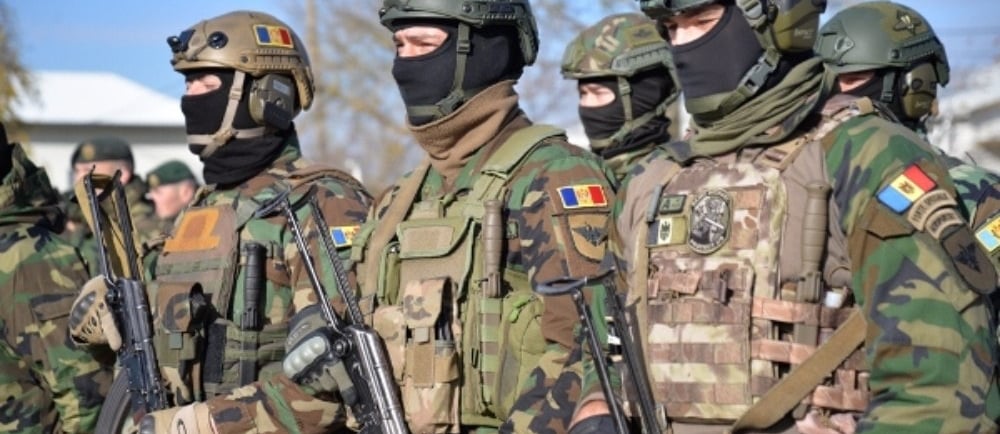Moldova: Delicate Balancing Act Amidst Challenges
Moldova’s efforts to navigate its energy challenges reflect the intricate balance between securing immediate supplies and pursuing long-term resilience amid geopolitical tensions and economic risks. As it grapples with dependence on Russian gas while seeking European integration, how can Moldova ensure stability without compromising its sovereignty?
MOLDOVA
Daria Maiorova
11/24/20243 min read


Moldova, a small but strategically significant country in Eastern Europe, faces a challenging energy landscape shaped by geopolitical tensions, regional instability, and its evolving relationship with Russia. As the country seeks to secure energy supplies for its citizens and maintain economic stability, Energy Minister Victor Parlicov’s upcoming visit to St. Petersburg for discussions with Gazprom underscores the complexities of balancing immediate needs with long-term strategic goals.
Moldova’s energy dependency is deeply intertwined with its geopolitical realities. The ongoing conflict in Ukraine and its impact on regional energy networks have exacerbated the country’s challenges. Historically reliant on Russian gas supplied through Ukraine, Moldova accelerated its pivot toward European energy markets in response to the Kremlin’s military actions in Ukraine in 2022. However, this shift has not entirely severed Moldova's reliance on Russian gas, particularly for the Transnistrian region, a breakaway territory supported by Moscow.
The Transnistrian region is home to the Cuciurgan Power Plant, which generates up to 90% of Moldova’s electricity. Continued gas supplies to this plant are critical not only for Transnistria but also for Moldova's right bank, creating a complex dependency that the country cannot easily abandon without significant socio-economic consequences.
Minister Parlicov’s visit to St. Petersburg highlights Moldova's pragmatic approach to energy diplomacy. The negotiations aim to secure stable gas supplies for the Transnistrian region while addressing broader concerns such as electricity affordability and regional stability. Despite Moldova’s pro-European stance and its criticism of Russia’s actions in Ukraine, the visit demonstrates a recognition of the necessity to engage with Gazprom to ensure uninterrupted energy flows.
Discussions will also focus on whether Gazprom intends to honour its contractual obligations beyond January 2025, given Ukraine’s decision not to renew its gas transit agreement with Russia. Without Ukrainian transit routes, Moldova would need to rely on alternative pipelines through Turkey, Bulgaria, and Romania, which would increase costs and logistical complexities.
Moldova’s reliance on gas and electricity from Transnistria presents both economic and security risks. Any disruption in gas supplies to the region could trigger a cascade of issues, including economic collapse in Transnistria and heightened regional instability. The region’s dependence on Russian gas gives Moscow leverage to exert political pressure on Chișinău, further complicating Moldova’s energy strategy. The country’s limited domestic storage facilities exacerbate the situation, forcing reliance on storage options in Ukraine and Romania, both of which carry higher costs and security concerns. Volatility in European gas prices adds another layer of complexity to efforts aimed at ensuring affordable energy for Moldovan citizens.
Moldova’s energy policy reflects a delicate balancing act between immediate needs and long-term aspirations. While the country has diversified its energy imports by purchasing gas on European markets, its reliance on Transnistrian electricity highlights the difficulty of fully disengaging from Russian energy networks. Under President Maia Sandu, Moldova’s pro-European leadership has prioritised integration with European energy markets, but this strategy requires significant investments in domestic energy infrastructure to reduce external dependencies.
The St. Petersburg visit also holds broader geopolitical significance. By engaging with Gazprom, Moldova demonstrates a pragmatic approach to navigating its energy challenges, even as it aligns itself with European values and policies. This dual-track strategy seeks to ensure short-term stability while gradually reducing the country’s reliance on Russian energy.
Moldova’s energy challenges epitomise the complexities faced by small states caught between competing geopolitical forces. Minister Parlicov’s negotiations with Gazprom reflect the urgency of securing energy supplies in the face of regional instability and rising prices. At the same time, Moldova must continue efforts to diversify energy sources and build resilience against external pressures. As the country moves forward, a balanced approach that prioritises both immediate energy security and long-term strategic goals will be essential for sustaining Moldova’s economic stability and sovereignty in an increasingly volatile region.


